The morality warriors for years used the power of law enforcement to crack down on consensual sex between adults, especially when those adults were LGBT. But the result has often served only to bring queer people together as a community. Raids on gay bars and bathhouses served to inspire the historic Stonewall riots that launched the modern LGBT rights movement in the U.S. The Toronto bathhouse protests served the same purpose in Canada. Fifty years after the Black Cat protests in Los Angeles, which indirectly led to the launch of The Advocate, we take a look at some of the most consequential strikes on gay bars and bathhouses dating back more than a century. 1. The Ariston Bathhouse (1903)
1. The Ariston Bathhouse (1903)
In turn-of-the-century New York City, queer people found company with one another in the Aristan, and police found reason to raid. On February 21, 1903, authorities detained 60 men in the club and arrested 14. A judge would later decry the acts committed in the bathhouse as "horrible practices." 2. Baker Street Club (1918)
2. Baker Street Club (1918)
The San Francisco Police Morals Department in 1918 planted a cook in the newly opened Baker Street Club to conduct surveillance on sexual activities inside. On February 16, police besieged the flats, then over a period of 10 days locked arriving patrons in rooms for questioning and to sign confessions. At least 31 men were arrested. The information gathered actually led to a wider investigation of homosexuality in nearby cities, which resulted in 20 arrests, including two cops on the Baker Street beat, according to Allan Berube's A History of Bathhouses. 3. Turkish Baths (1929)
3. Turkish Baths (1929)
Moral reformers in New York City raised political pressure on police in the 1920s to shut down the Lafayette Brothers' Turkish Baths, a popular spot for gay men living and visiting the city. A German gay magazine in 1929 published an account of a 26-year-old European visitor that said eight detectives went undercover in the bathhouse, then rounded all patrons in the front room and beat the guests. The account notes a Swedish visitor had two ribs broken during the raid, and called the police action the "crudest treatment I've ever been through" before blaming American "furtiveness and phony shame" for motivating the police action, according to Allan Berube's A History of Bathhouses. 4. Cooper's Donuts (1959)
4. Cooper's Donuts (1959)
Located between Los Angeles gay bars Harold's and the Waldorf, Cooper's Donuts at night became a hub of social activity for drag queens, gays, trans people, and hustlers in the 1950s. Maybe a doughnut shop wasn't the best place to avoid police, but it still came as a shock when two officers showed up in May 1959 to randomly ask folks for IDs. The incident led to a violent interaction between the police and the LGBT people gathered before those letters of the acronym had found their way together. While one of the first known pushbacks against police raids, it likely would have been forgotten if not for the fact gay literature pioneer John Rechy happened to be there as the time. 5. 21st Street Baths (1966)
5. 21st Street Baths (1966)
San Francisco police in 1966 announced a crackdown on gay bathhouses and in March of that year raided the 21st Street Baths. A clerk was arrested for refusing to cooperate with police, and a minister was arrested for making an advance on an officer. A jury was unable to agree on a verdict on the minister's case, according to A History of Bathhouses. 6. Gene Compton's Cafeteria (1966)
6. Gene Compton's Cafeteria (1966)
The Tenderloin district in San Francisco served as an accepting haven for drag queens and transgender folk in the 1960s, and eventually became a target of police as well. Gene Compton's Cafeteria was generally a safe place for people in the late hours of night, but one August evening in 1966, an officer arresting a patron for violating a "cross-dressing" ordinance got a splash of hot coffee in the face and violence broke out. Owners of the establishment responded by banning trans people, which in turn sparked a riot that later became the subject of trans director Laurie Lezin-Schmidt's documentary Screaming Queens: The Riot at Compton's Cafeteria. 7. Black Cat (1967)
7. Black Cat (1967)
A New Year's police raid on the Black Cat, a gay bay in the Silver Lake neighborhood of Los Angeles, resulted in the beatings of more than a dozen people; two men were arrested for the crime of kissing and a bartender suffered a ruptured spleen. While such raids of gay bars were common in the late 1960s, the severity of this incident sparked protests for weeks. It also led Richard Mitch and Bill Mau to launch local gay rights newsletter PRIDE (Personal Rights in Defense and Education), which would later become The Advocate. 8. Dover Hotel (1969)
8. Dover Hotel (1969)
The Dover Hotel in Los Angeles operated practically as a gay bathhouse, and as such drew the attention of police, who conducted frequent raids. But one such action turned deadly on March 9, 1969, when nurse Howard Efland was, according to witnesses, beaten to death outside the hotel. The incident has been memorialized by the Back2Stonewall website, which says vice officers reported Efland groping them, something that apparently warranted the man being dragged downstairs in the nude before the assault. The officers would report that Efland was being taken to a police station when he kicked a vehicle open and was flung onto the Hollywood Freeway and died. The L.A. County Coroner would rule the death an "excusable homicide." 9. Stonewall Inn (1969)
9. Stonewall Inn (1969)
There may be no more revered location in LGBT history than the Stonewall Inn in New York's Greenwich Village, where a police raid on June 28, 1969, closed the bar down for the illegal sale of alcohol. But as the police handled the incident with signature NYPD "bad grace," as an article published in The Advocate put it, onlookers began throwing pennies at officers and then set the bar on fire. The next day, management found cops had taken all the money, including waiters' tips, before opening the bar up as a free store for passersby to take whatever they wished. 10. The Snake Pit (1970)
10. The Snake Pit (1970)
Mere months after the Stonewall riots, New York police officers raided the Snake Pit and arrested 167 patrons. Diego Vinales, an Argentine national, reportedly leaped from a second-story window to avoid being captured and deported, and impaled himself on an iron fence; he survived and was charged with resisting arrest. The raid would prompt a demonstration by the Gay Liberation Front and other organizations that moved through the day from Sheridan Square to St. Vincent's Hospital, according to an account published in The New York Times. 11. Liberty Baths (1978)
11. Liberty Baths (1978)
California lawmakers in 1976 passed a consenting adults law in part to stop persecution of gays through bathhouse raids, but that didn't stop San Francisco cops from raiding Liberty Baths in an apparent test of that law, according to A History of Bathhouses. Three patrons were arrested on charges of lewd conduct, but prosecutors declined to bring the cases to court.  12. Club Baths, Romans II, Richmond Street and Barracks (1981)
12. Club Baths, Romans II, Richmond Street and Barracks (1981)
While gay Americans have Stonewall, LGBT Canadians have Operation Soap. Four Toronto bathhouses -- Club Baths, Romas II Health and Recreation Spa, Richmond Street Health Emporium, and Barracks -- were all raided on February 5, 1981, and 286 men were arrested on charges of prostitution or indecency. The incident remains one of the largest mass arrests in Canadian history, according to The Guardian. The orchestrated event prompted 3,000 protesters to take to the street the following day. After decades of criticism, Toronto police last summer issued a public apology for the raids. 13. Pisces Health Spa (1981)
13. Pisces Health Spa (1981)
A "morality" force also was conducting stings in Edmonton, Canada, the same year as the Operation Soap raids. Undercover officers regularly visited the Pisces Health Spa and would arrest 56 men. The matter inspired the play Uncovered, and police today concede a cultural insensitivity in the raid on consenting adults. 14. Brownies (1988)
14. Brownies (1988)
London gay sauna Brownies was closed down by a police raid in 1988. The owner of the Streatham establishment would end up fined 5,000 pounds and sentenced to six months in jail, something Gay News at the time would label a "draconian sentence." A judge justified the sentence based on the shock that might befall a person who walked in off the street expecting only to find a sauna. 15. Copa and Club 21 (1991)
15. Copa and Club 21 (1991)
The Broward County Sheriff's Office conducted joint raids of Florida gay bars Club 21 and Copa on May 3, 1991, and the incidents would play a role in Sheriff Nick Navarro eventually losing reelection, ironically after conducting such raids in an apparent publicity stunt. Byron Jones, who led a group from the Gay and Lesbian Youth Group in Club 21 the evening of the raid, wrote later in The Advocate that hundreds were detained by police though only six were arrested. But it was the raid at Copa that prompted a lawsuit from owners that would be settled out of court by the next administration. At the Copa, Navarro actually invited media and visiting dignitaries to watch the raid happen; he even brought his wife along for the festivities, according to the Miami Herald. 16. Junjie (2000)
16. Junjie (2000)
Three years after China decriminalized homosexuality, police in Guangzhou in July 2000 raided the Junjie men's health and beauty center and arrested 37 men on charges of prostitution. The BBC reported that authorities had characterized the arrests as part of a "strike against evil social phenomena." 17. Pussy Palace (2000)
17. Pussy Palace (2000)
Formally called the Toronto Women's Bathhouse but known to the city's lesbians as the Pussy Palace, the establishment was the site of a raid September 14, 2000, when six male police officers descended on an all-female party. About 350 women were at the party when officers conducted strip searches and tore signs from the walls. Police charged organizers of the Pussy Palace Collective with violating liquor laws, though the courts would throw those charges out in 2002, according to CBC News. When Toronto's police chief issued a public apology for bathhouse raids through the years, the collective politely rejected the gesture and declined to appear at a ceremony marking the news. 18. Goliath's Sauna (2002)
18. Goliath's Sauna (2002)
Police in Calgary, Canada, drew criticism after a 2002 raid of Goliath's Sauna & Texas Lounge, the only gay bathhouse in town. Authorities charged two bartenders with running a common bawdy house and 13 patrons as having no lawful excuse for being there. 19. Taboo (2003)
19. Taboo (2003)
Montreal police raided gay strip bar Taboo on May 10, 2003, then publicly suggested they were specifically raiding the establishment because of the potential for older men preying on young dancers. Four patrons were arrested for committing indecent acts, while seven staff and 23 dancers were also arrested. While police said they had investigated a complaint about underage dancers for several months leading up to the raid, investigation ultimately determined just one dancer to be too young to legally work there, and he'd gotten the job with a fake ID and would turn 18 within weeks. 20. Hamilton's Warehouse Spa and Bath (2004)
20. Hamilton's Warehouse Spa and Bath (2004)
Under the guise of doing public health inspections, authorities in Hamilton, Canada, on August 4, 2004, arrested two patrons for indecency and sparked outrage in the Canadian gay community. Police later admitted learning gay activities happened at the establishment thanks to spotting comments on a gay cruising website, despite initially suggesting they had no idea the business was a bathhouse. 21. Destination and Oasis (2008)
21. Destination and Oasis (2008)
During what AIDS activist Wan Yahai suggested was a crackdown on gays in Beijing, the Destination got closed March 9, 2008, by police supposedly for playing music too loud and hosting too large a crowd, according to an article in the Shangaiist. Later that month, 10 police cars rolled into Oasis, the most popular gay bathhouse in Beijing, and cops rounded up more than 70 people, including staff and patrons, during a March 20 raid. The following day, police went into a second Oasis location and arrested staff. 22. Rainbow Lounge (2009)
22. Rainbow Lounge (2009)
A June 28, 2009, raid on the Rainbow Lounge, a gay bar in Fort Worth, Texas, resulted in one bar patron being seriously hurt. Two officers involved in the incident would later be fired for failing to report the use of force. Their direct supervisor also lost his job, and other superiors in the department received suspensions or reprimands for the handling of the raid.  23. The Eagle (2009)
23. The Eagle (2009)
When the Atlanta Police's "Red Dog" unit raided gay bar the Eagle in September 2009, patrons reported being forced onto the ground while officers used homophobic slurs and conducted background checks on everybody there. Police found no weapons or drugs, nor any indication of public sex, and nobody was charged with any crime. But Lambda Legal would file a federal lawsuit that the city settled, though courts found that for years the police were not meeting terms of that agreement. The incident today still gets characterized as a huge debacle and black eye for Atlanta police. 24. The Club Dallas (2010)
24. The Club Dallas (2010)
After years of minimal friction between Dallas police and rhe Club Dallas, a complaint prompted officers on October 8, 2010, to raid the bathhouse and arrest 11 people on public lewdness or indecent exposure charges, according to the Dallas Voice. The club reportedly helped bail individuals out of jail and offered to pay for their legal representation. 25. Jonker Street (2010)
25. Jonker Street (2010)
Two gay spas in Malacca, Malaysia, were raided after police received calls from the parents of an Indonesian student. Fridae reports that more than 30 men, all in their 20s to 50s, were arrested in the illegal clubs during the November 2010 raids.  26. Club Ghost (2013)
26. Club Ghost (2013)
Lebanese police arrested four people during a raid of Club Ghost ordered by Dekwaneh municipal official Antoine Chaktoura, according to Global Voices. One of the arrested people, a trans woman, would tell NOW Lebanon that she was stripped nude for pictures and called a "half a man" by police. 27. La Bata de Boatine (2013)
27. La Bata de Boatine (2013)
Gay Pride in Barcelona closed in violent fashion in 2013 when police on June 29 broke down the door to La Bata de Boatine around 3 a.m. and cleared about 50 customers out of the establishment. Four van-loads of Catalan regional police arrived and cordoned off streets, according to local newspaper El Diario. Bar owner Miquel told the paper police only asked him for identification, and blamed the high-drama affair on homophobia. Police immediately afterward raided El Bar, a straight bar next door thar shared an address. 28. Central Station (2013)
28. Central Station (2013)
Police arrested 40 people standing outside popular Moscow gay bar Central Station in December 2013, shortly after a number of disputes between the bar owner and building landlords, according to The Moscow Times. Andrei Lishchinsky, head of the club, told the news outlet that he believed police were working in concert with people who had previously attacked the club. 29. Club Envy (2014)
29. Club Envy (2014)
Club Envy became the de facto gay bar in Nairobi, Kenya, after the closing of Tacos, and police there knew it. After a July 6, 2014, raid in which around 65 gay people were rounded up and taken to the police station, Nairobi news outlet Ghafla reported that the arrests were made simply because the patrons were homosexual. 30. BlueBoy (2016)
30. BlueBoy (2016)
The longest-running gay bar in Kuala Lumpur, Malaysia, still sees police raids today. Passport reported that last July, the bar saw a slowdown in traffic thanks to a police raid weeks earlier. Police apparently regularly came in to demand the IDs of guests, then ended up arresting Muslims to charge them not with any homosexuality-related crime but with the illegal consumption of alcohol, a violation of Sharia law largely unenforced in straight nightclubs.


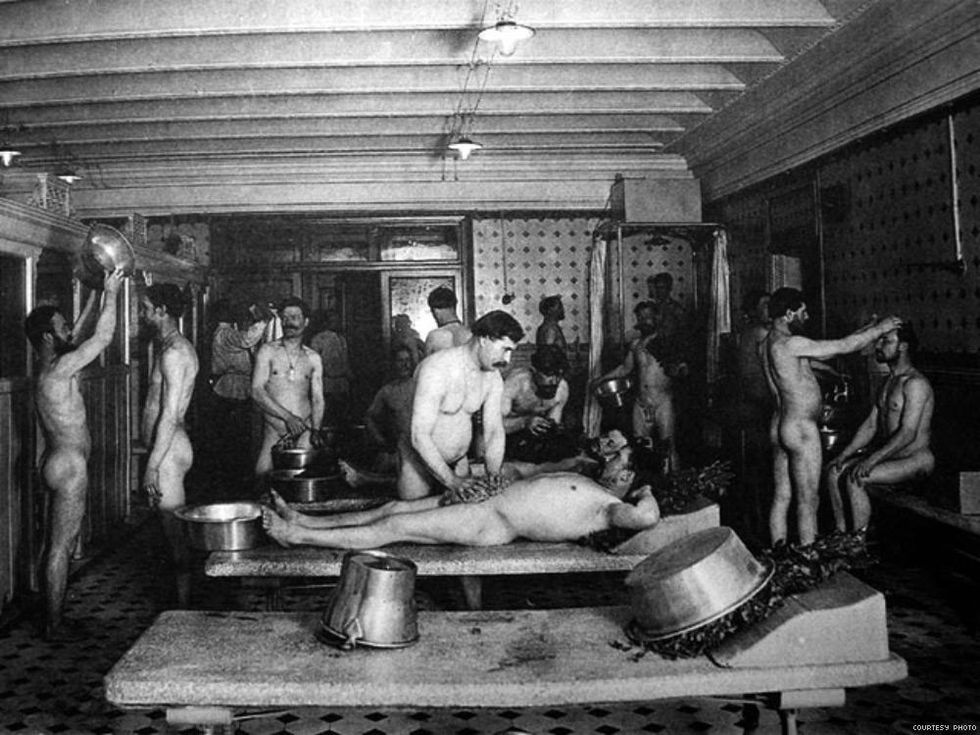 1. The Ariston Bathhouse (1903)
1. The Ariston Bathhouse (1903)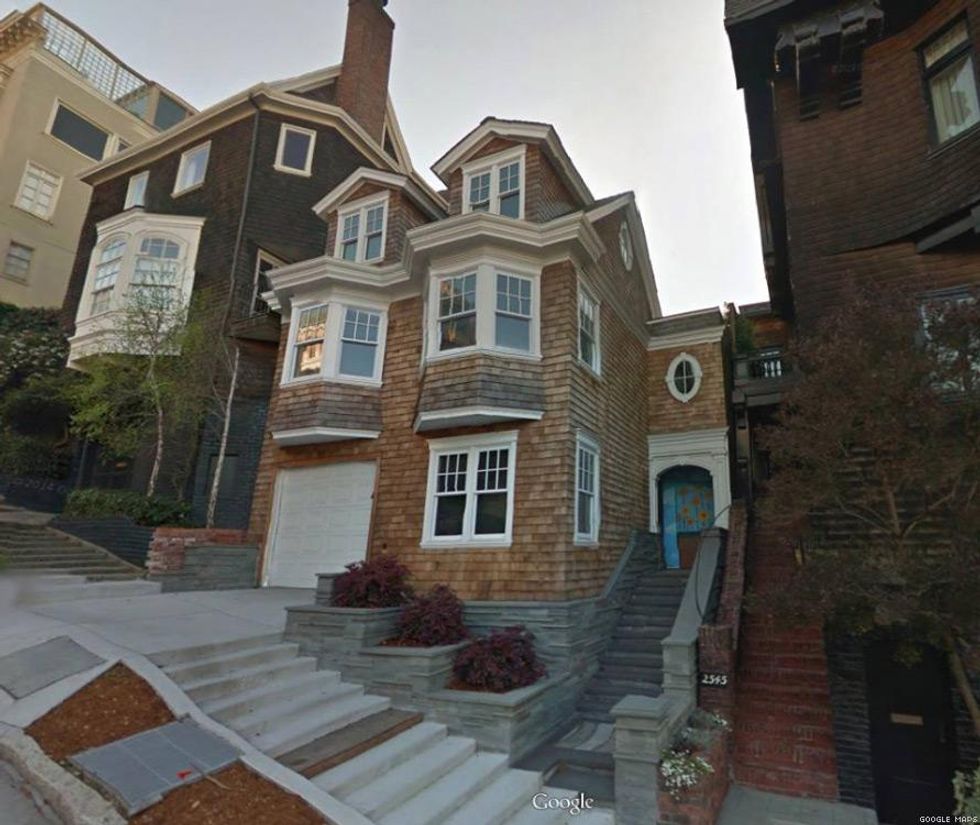 2. Baker Street Club (1918)
2. Baker Street Club (1918)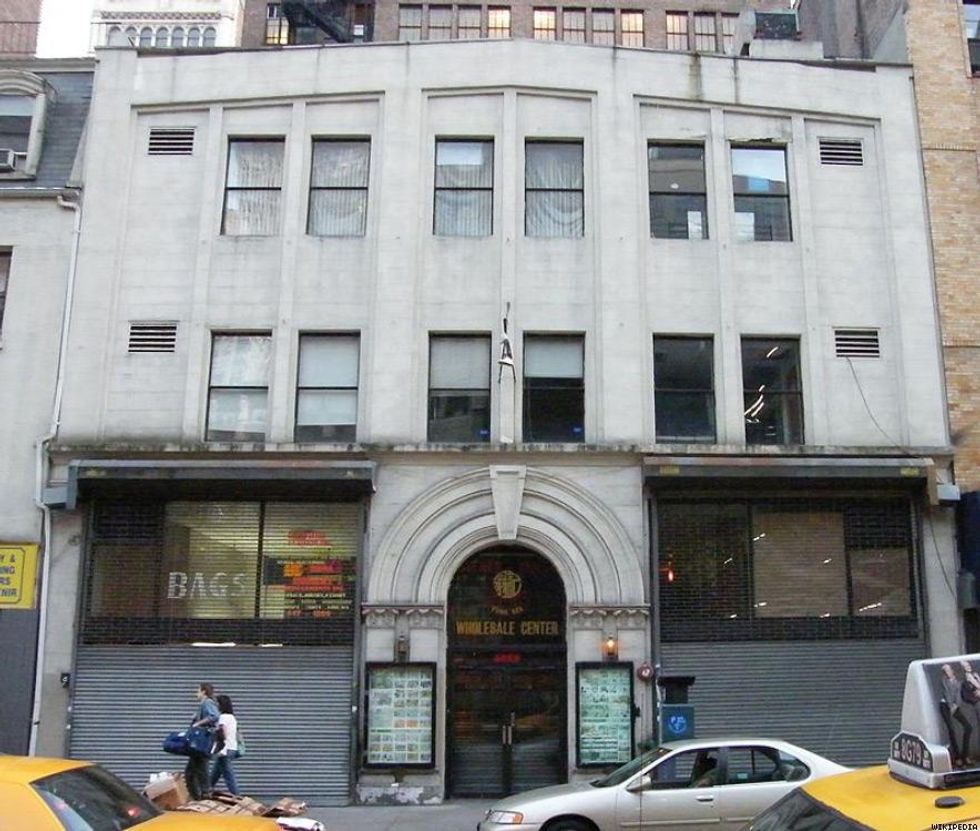 3. Turkish Baths (1929)
3. Turkish Baths (1929) 4. Cooper's Donuts (1959)
4. Cooper's Donuts (1959)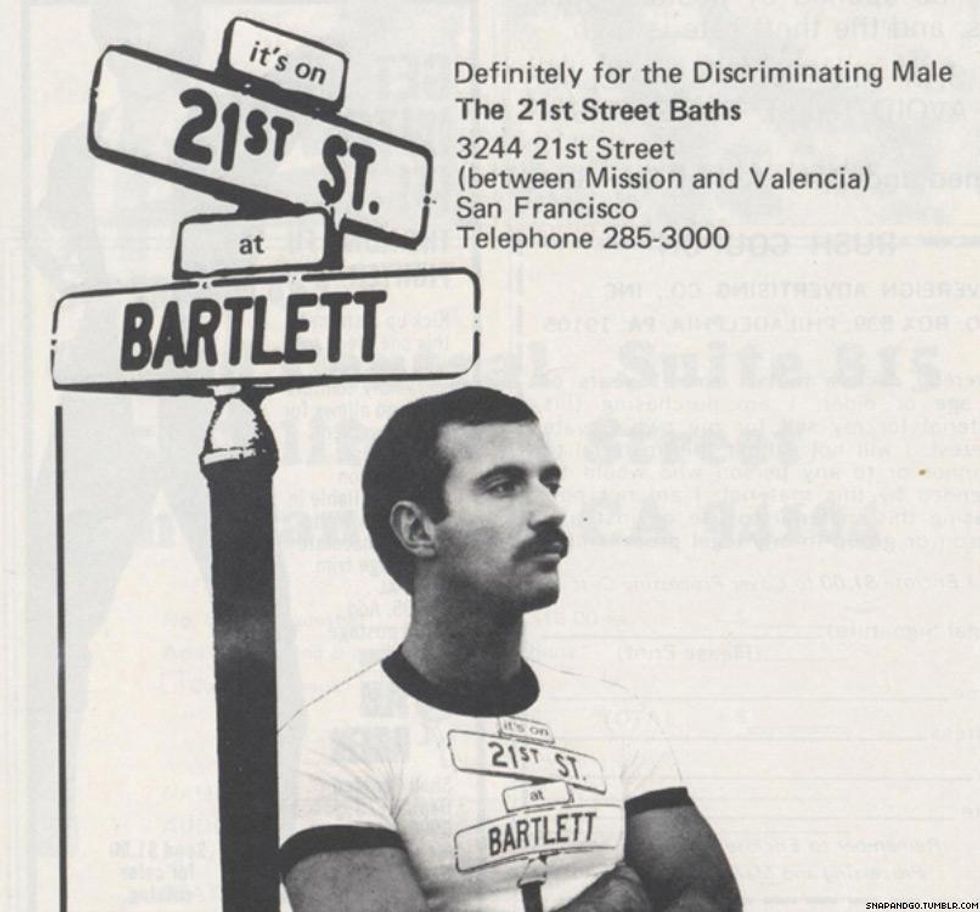 5. 21st Street Baths (1966)
5. 21st Street Baths (1966)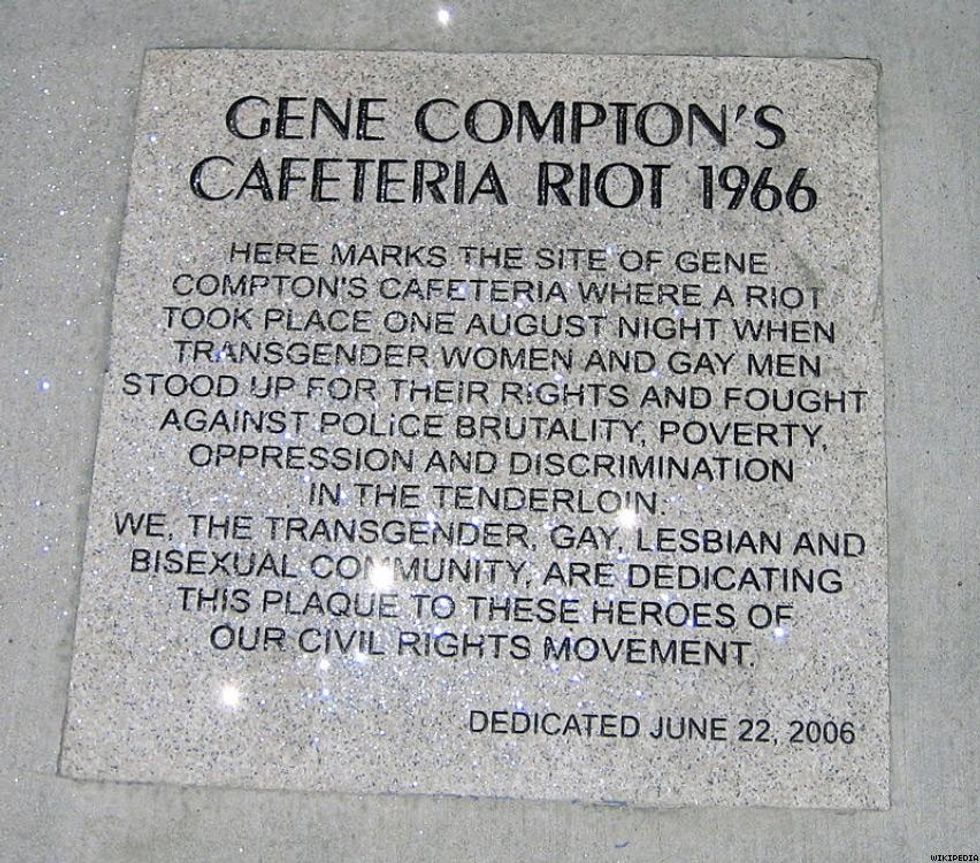 6. Gene Compton's Cafeteria (1966)
6. Gene Compton's Cafeteria (1966)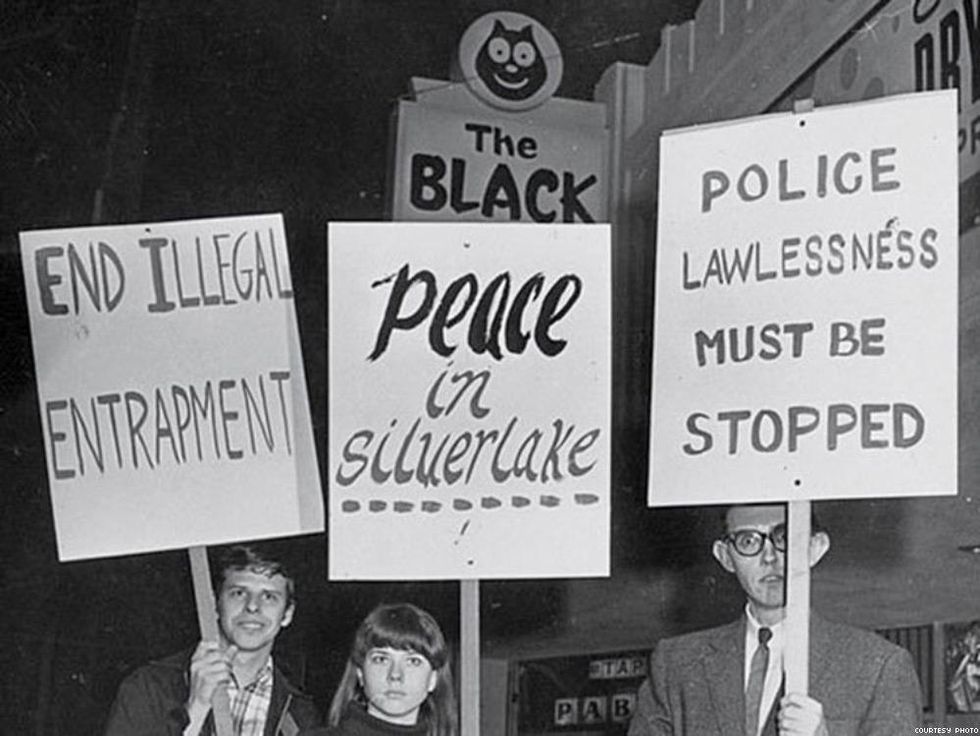 7. Black Cat (1967)
7. Black Cat (1967)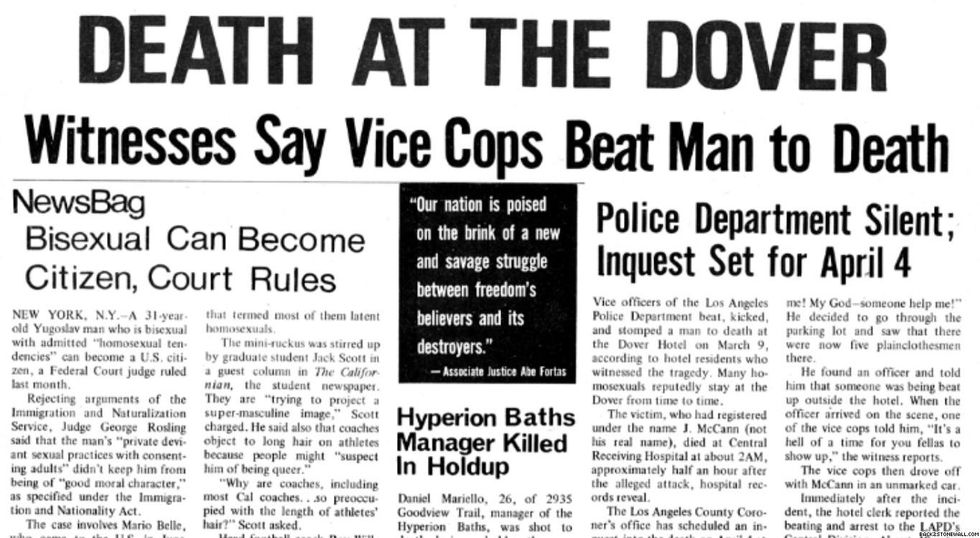 8. Dover Hotel (1969)
8. Dover Hotel (1969)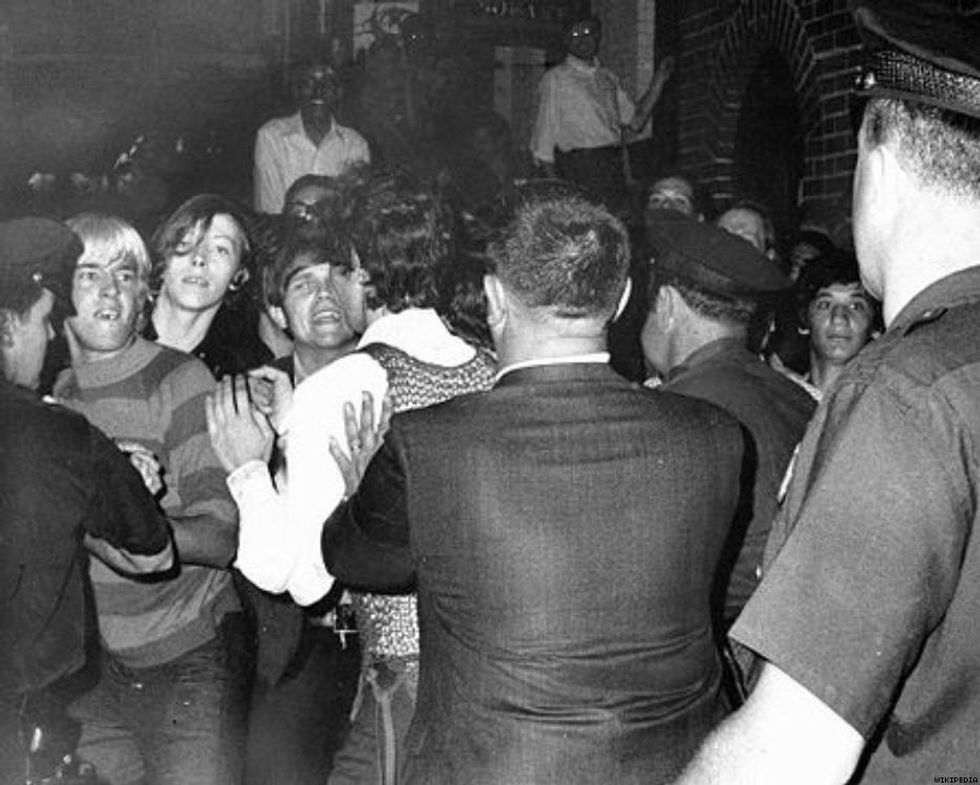 9. Stonewall Inn (1969)
9. Stonewall Inn (1969)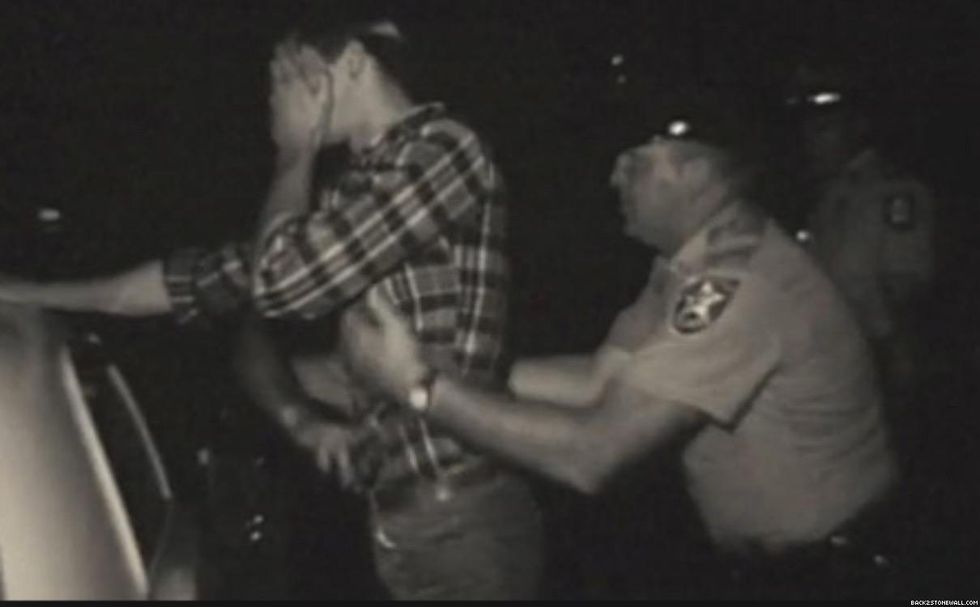 10. The Snake Pit (1970)
10. The Snake Pit (1970)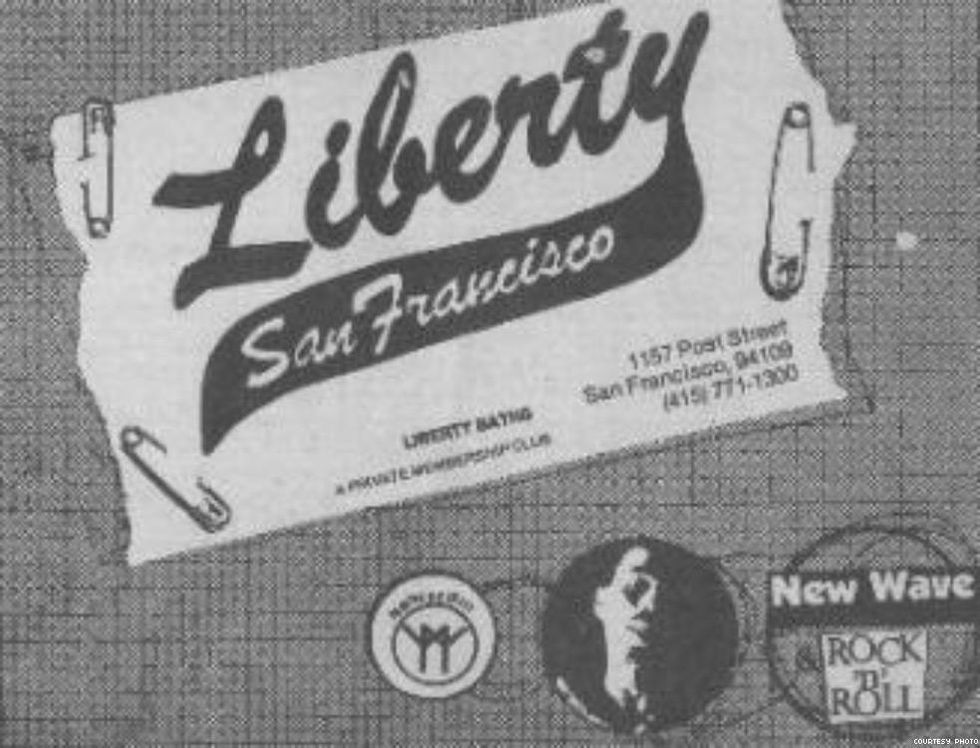 11. Liberty Baths (1978)
11. Liberty Baths (1978)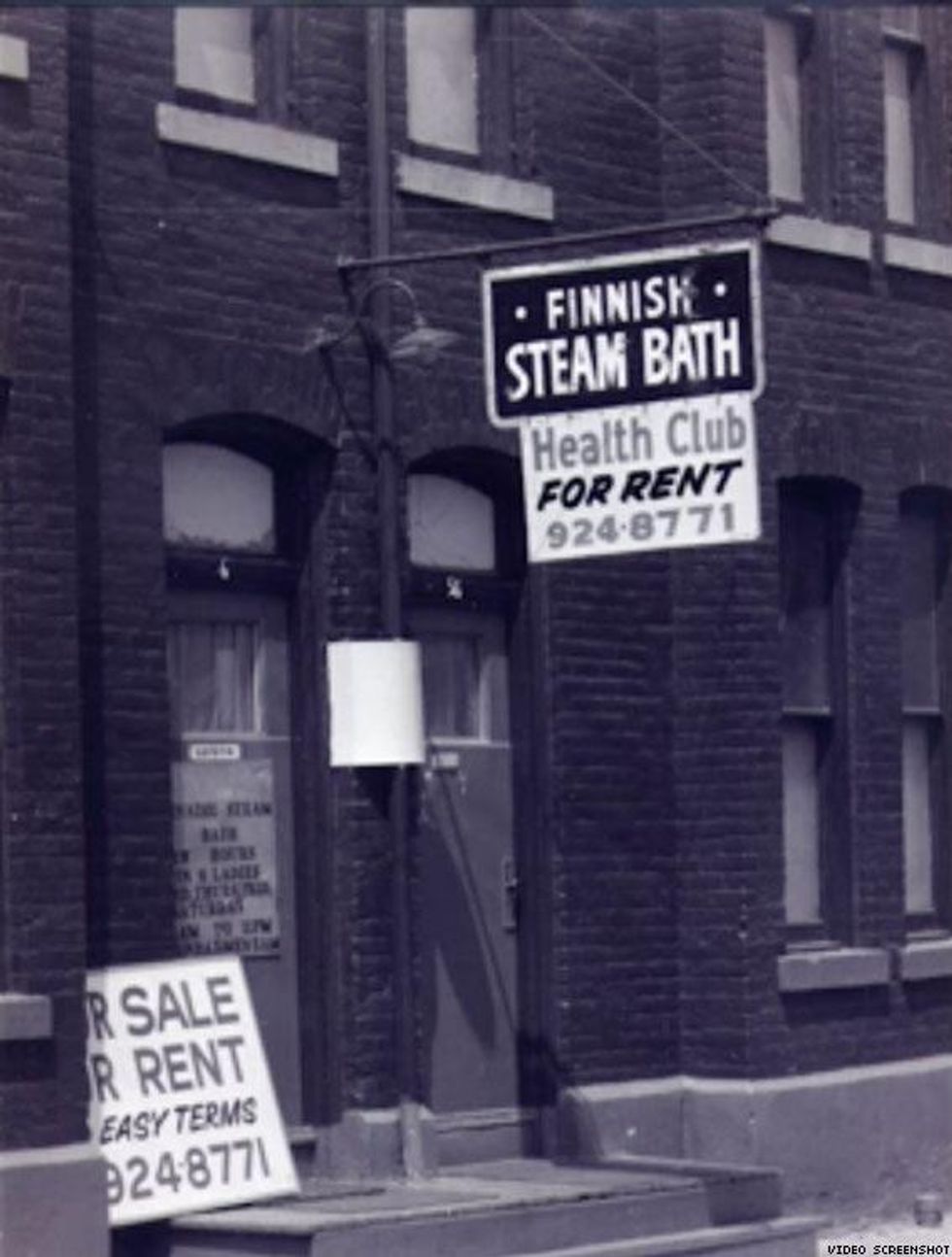 12. Club Baths, Romans II, Richmond Street and Barracks (1981)
12. Club Baths, Romans II, Richmond Street and Barracks (1981)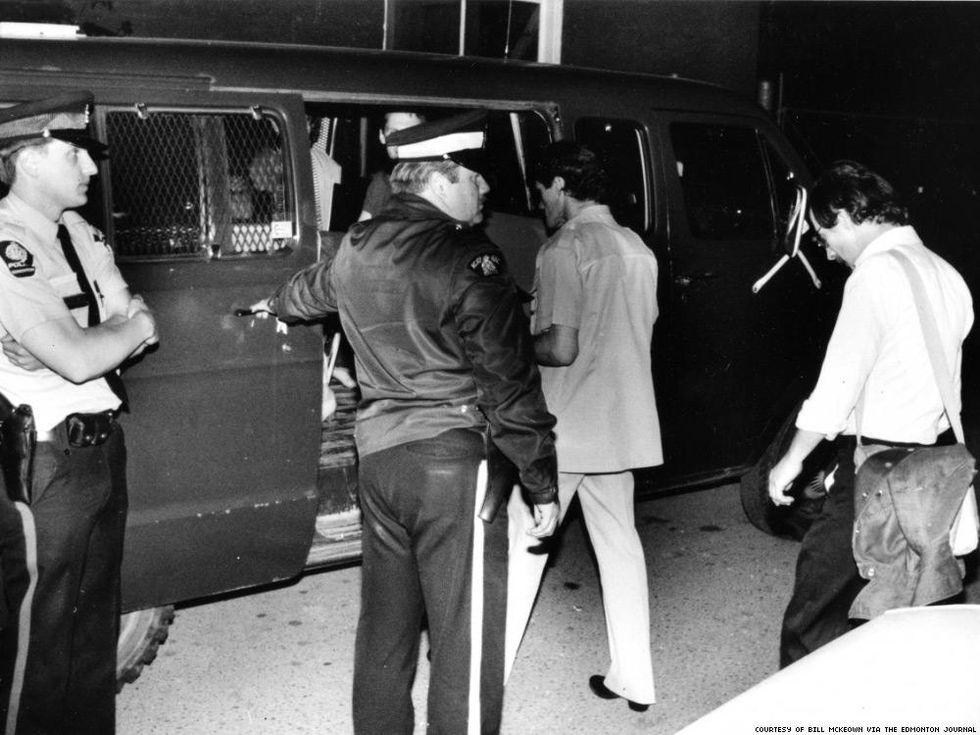 13. Pisces Health Spa (1981)
13. Pisces Health Spa (1981)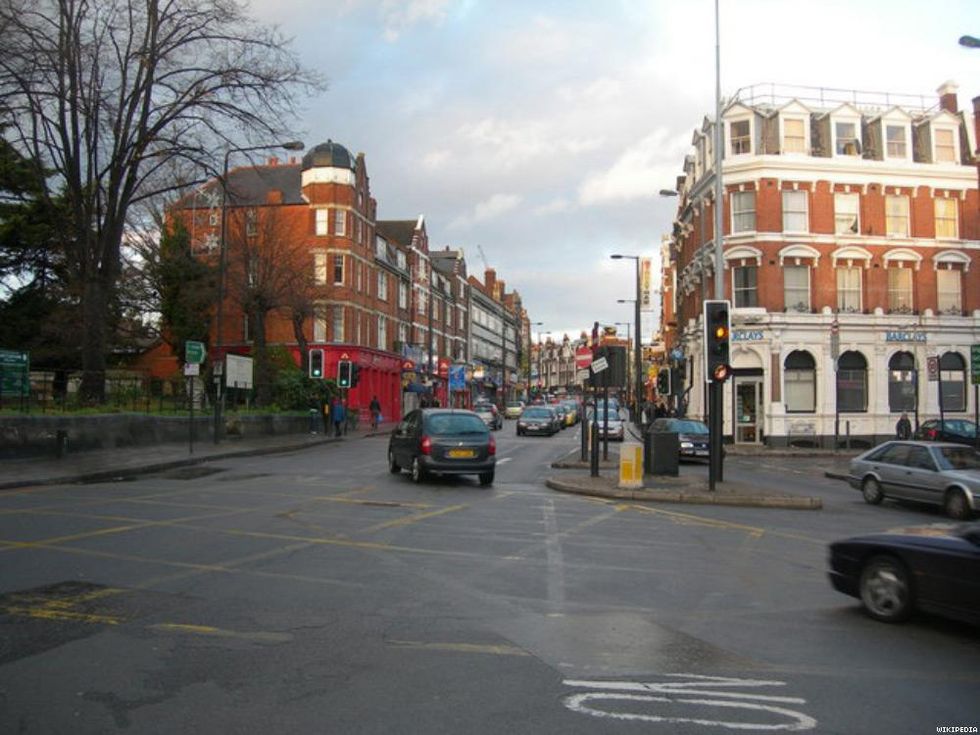 14. Brownies (1988)
14. Brownies (1988)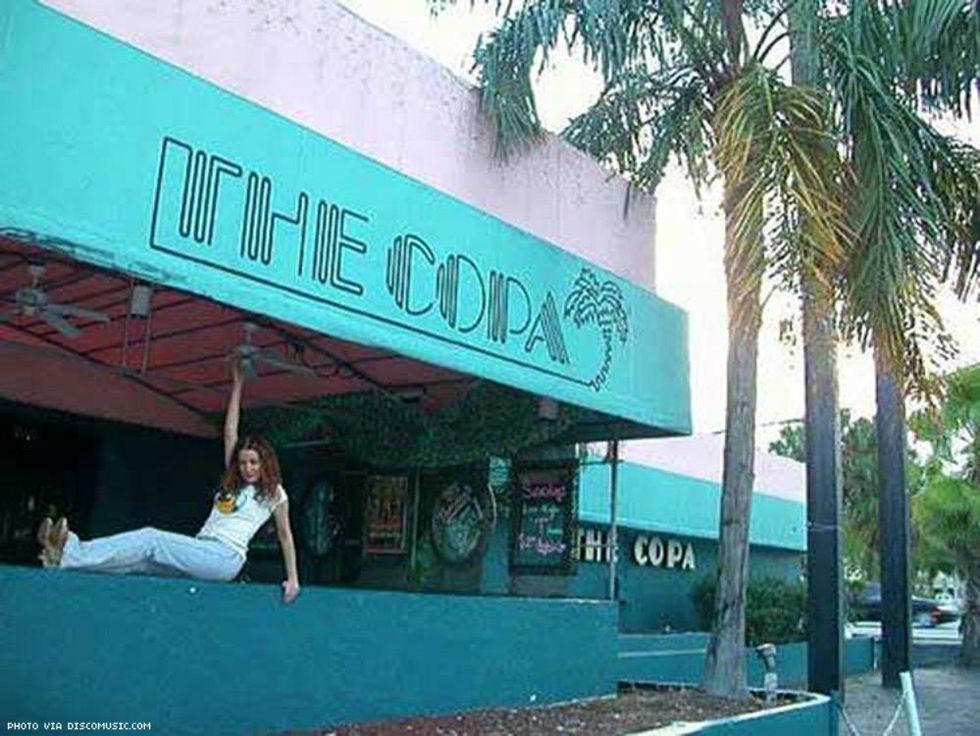 15. Copa and Club 21 (1991)
15. Copa and Club 21 (1991)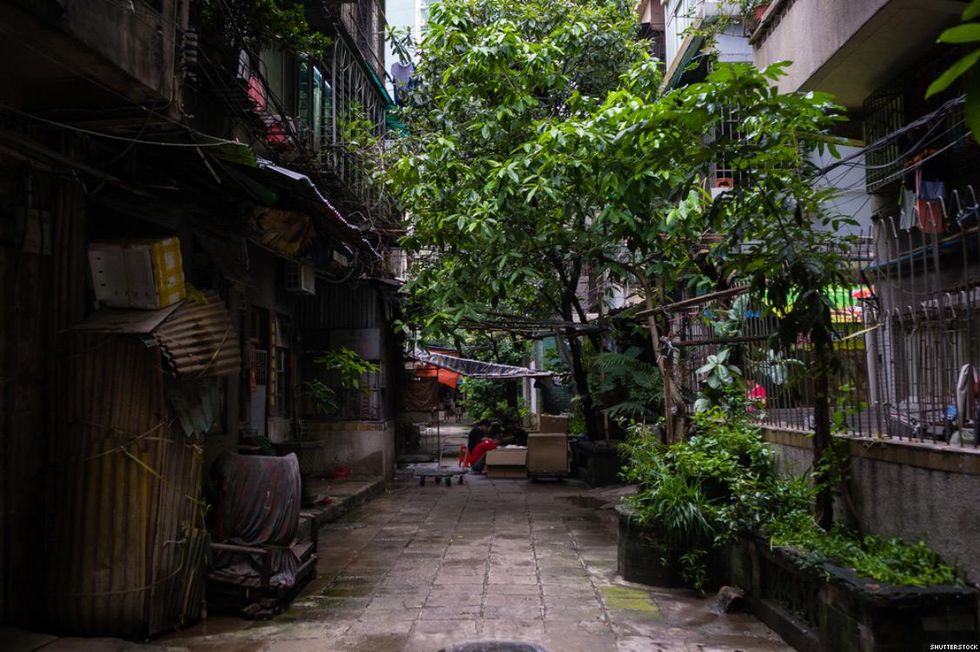 16. Junjie (2000)
16. Junjie (2000)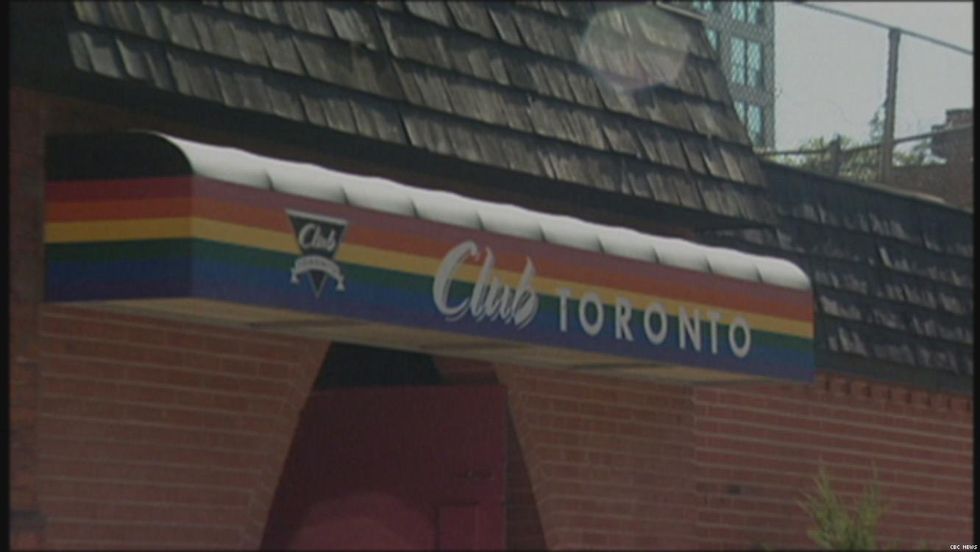 17. Pussy Palace (2000)
17. Pussy Palace (2000)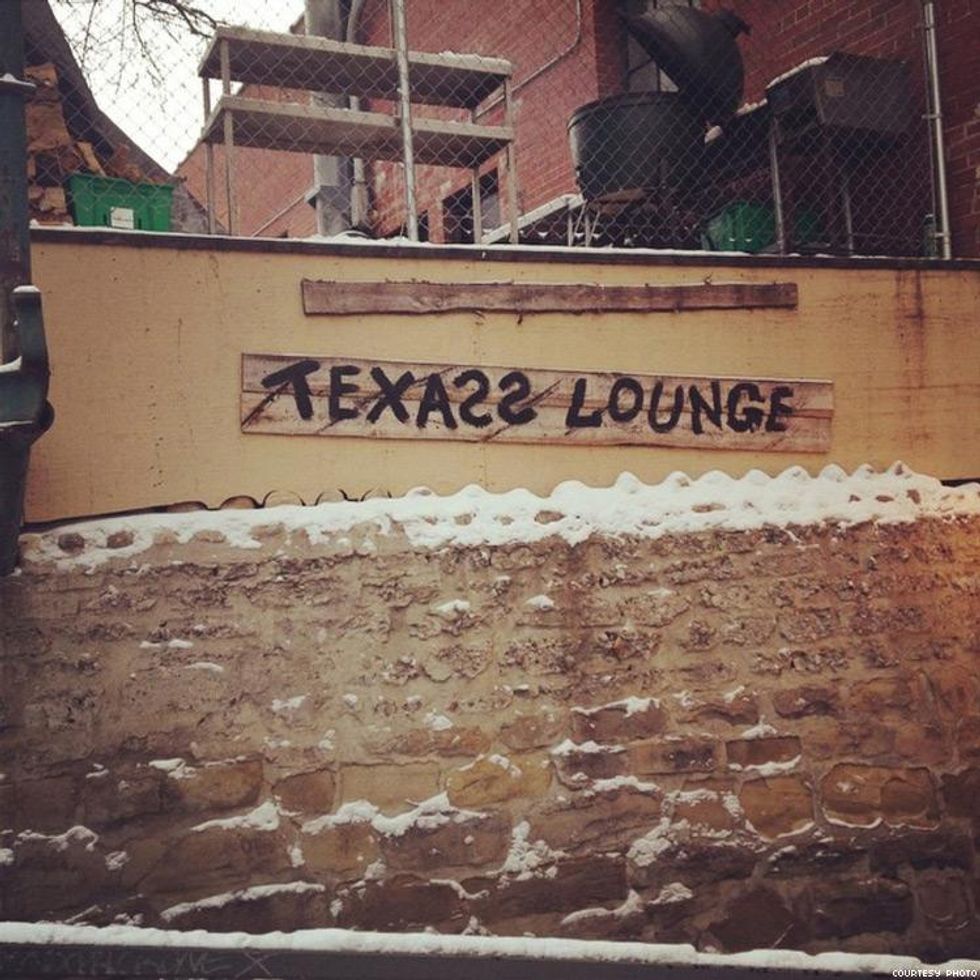 18. Goliath's Sauna (2002)
18. Goliath's Sauna (2002)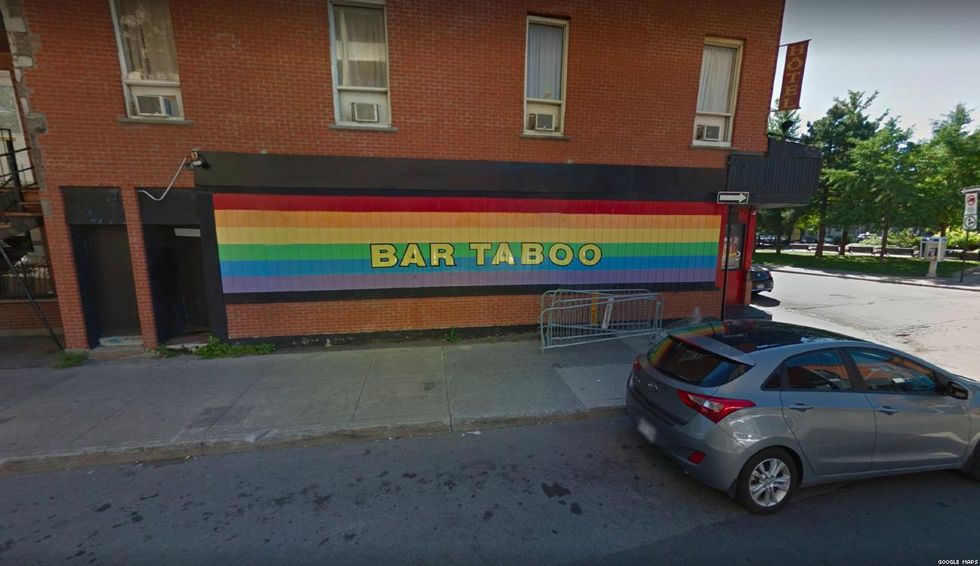 19. Taboo (2003)
19. Taboo (2003)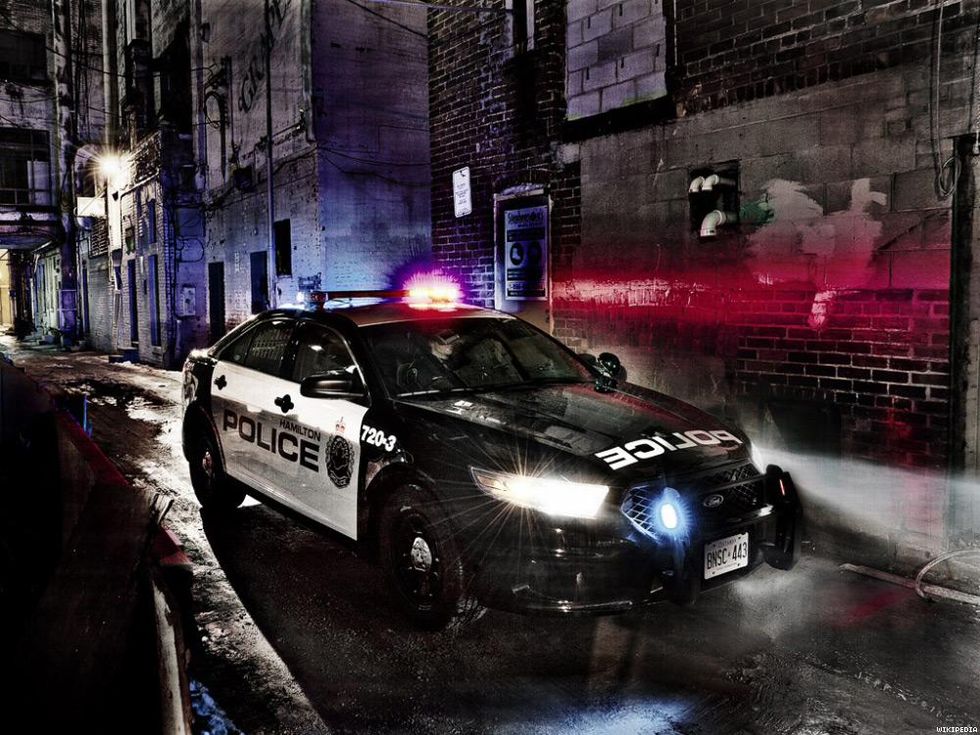 20. Hamilton's Warehouse Spa and Bath (2004)
20. Hamilton's Warehouse Spa and Bath (2004)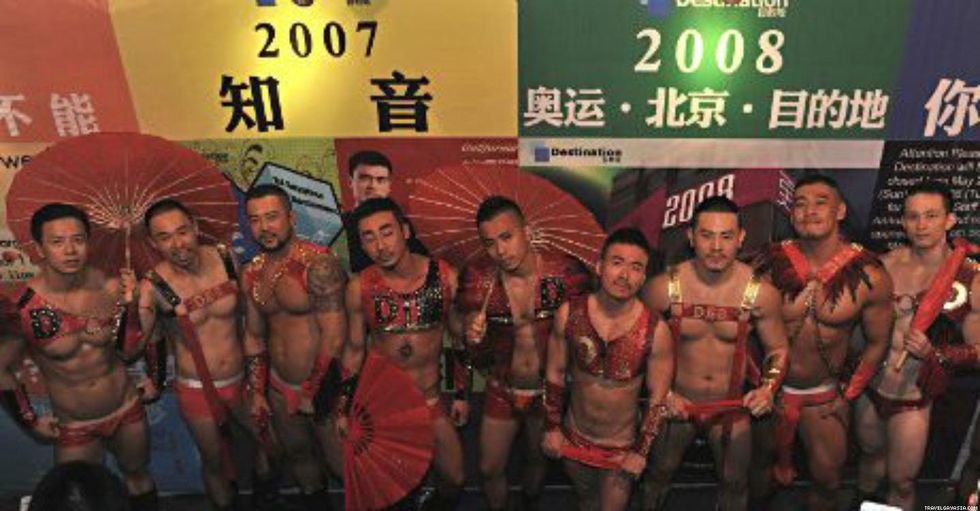 21. Destination and Oasis (2008)
21. Destination and Oasis (2008)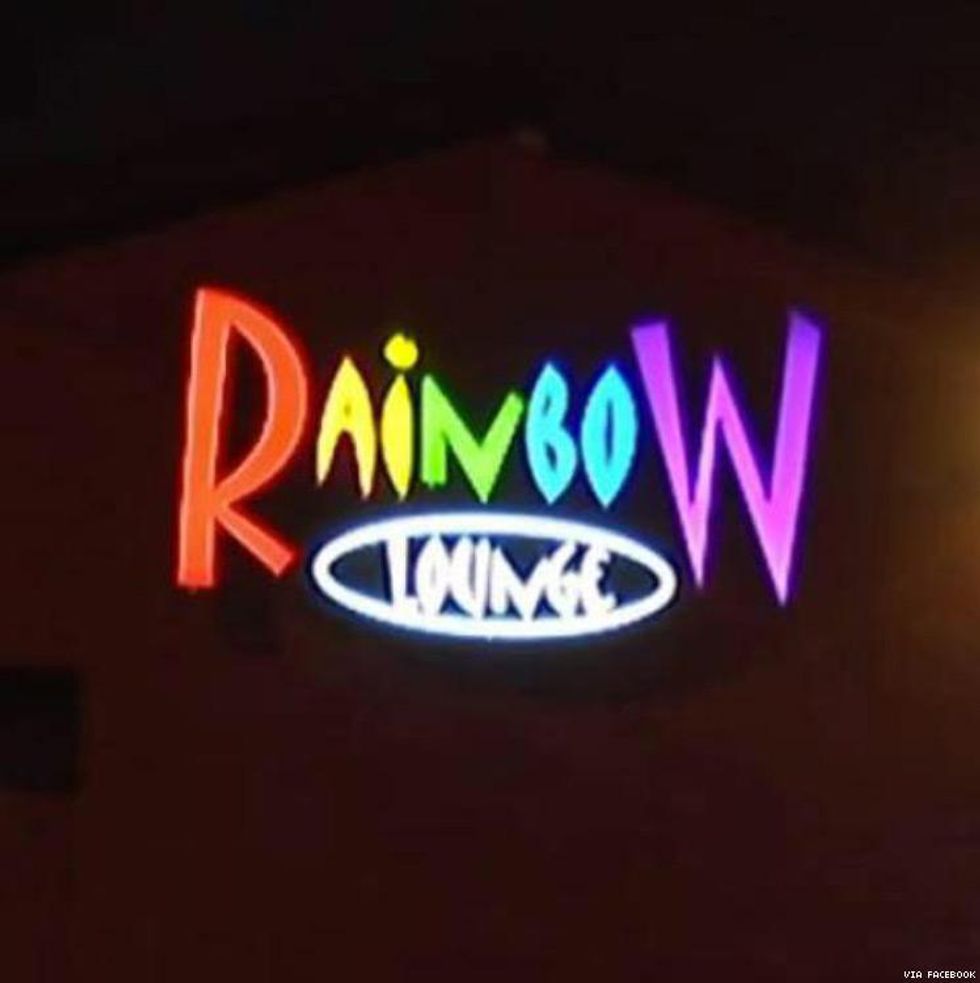 22. Rainbow Lounge (2009)
22. Rainbow Lounge (2009)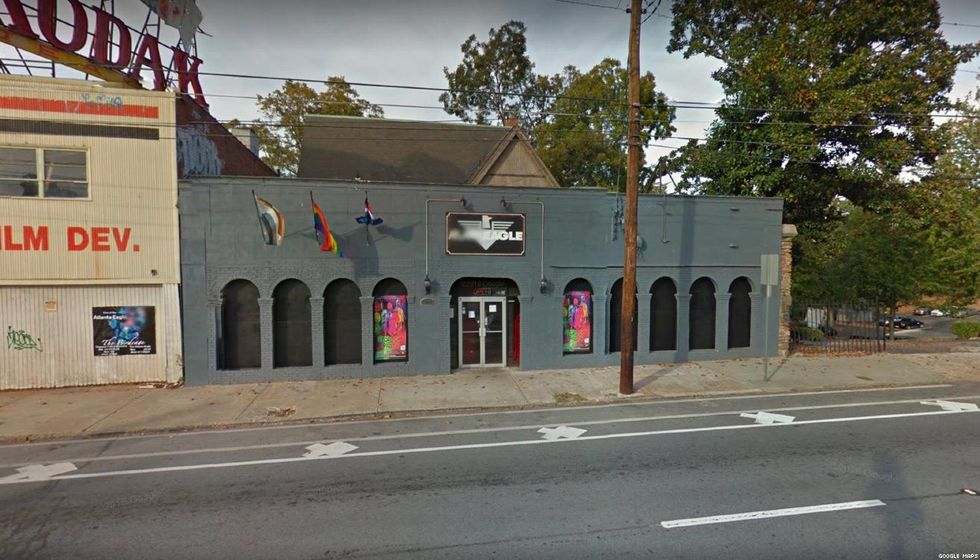 23. The Eagle (2009)
23. The Eagle (2009)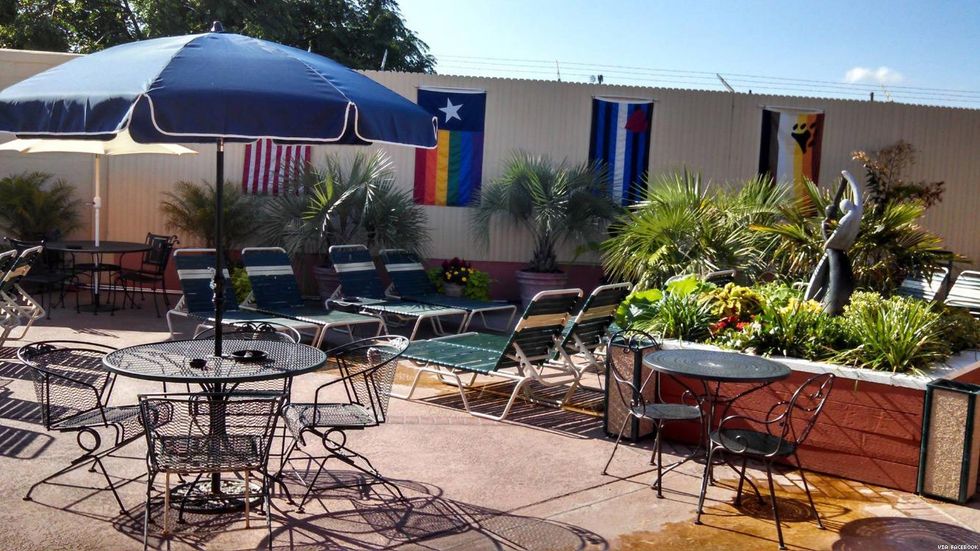 24. The Club Dallas (2010)
24. The Club Dallas (2010)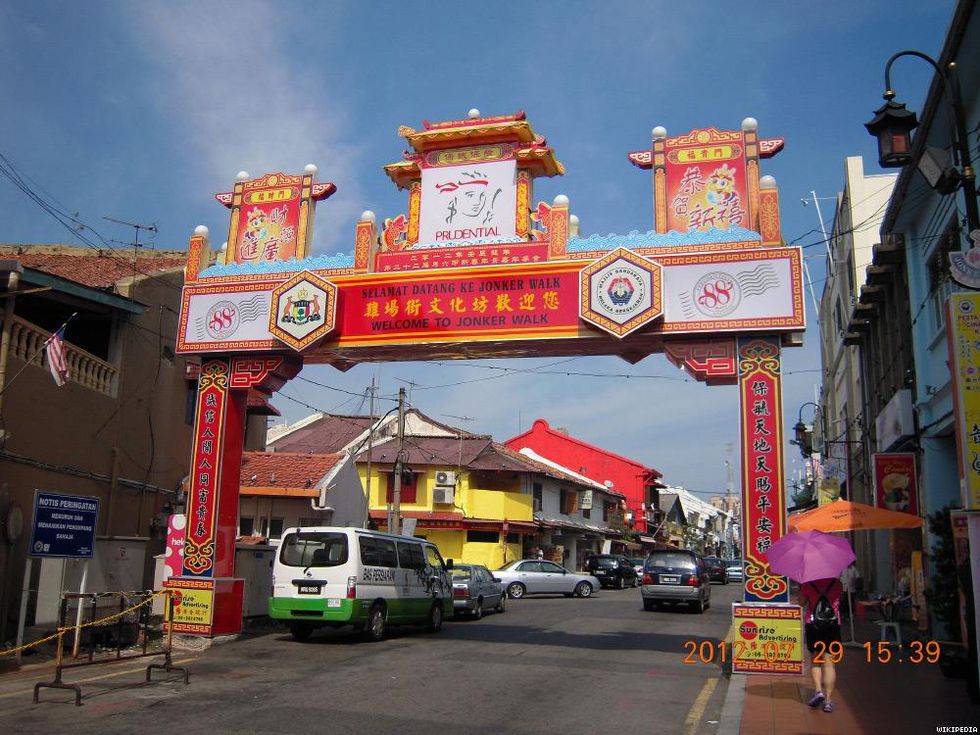 25. Jonker Street (2010)
25. Jonker Street (2010)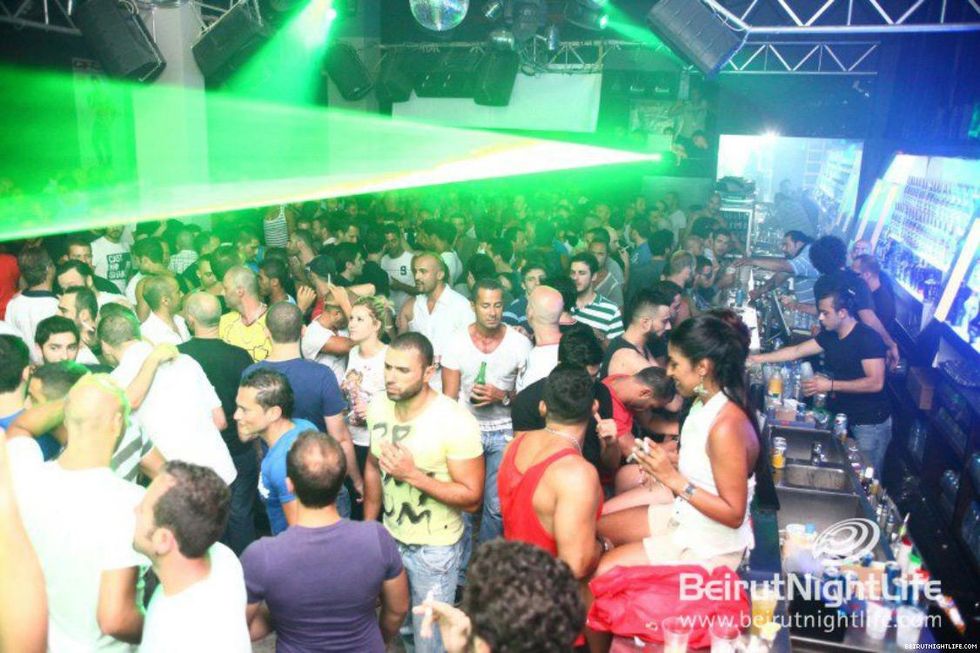 26. Club Ghost (2013)
26. Club Ghost (2013)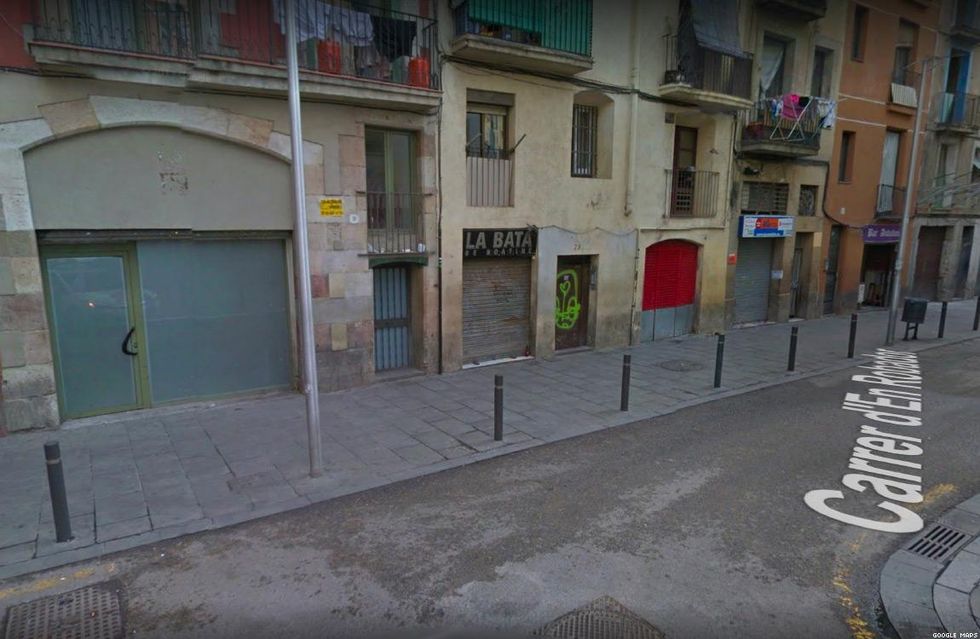 27. La Bata de Boatine (2013)
27. La Bata de Boatine (2013)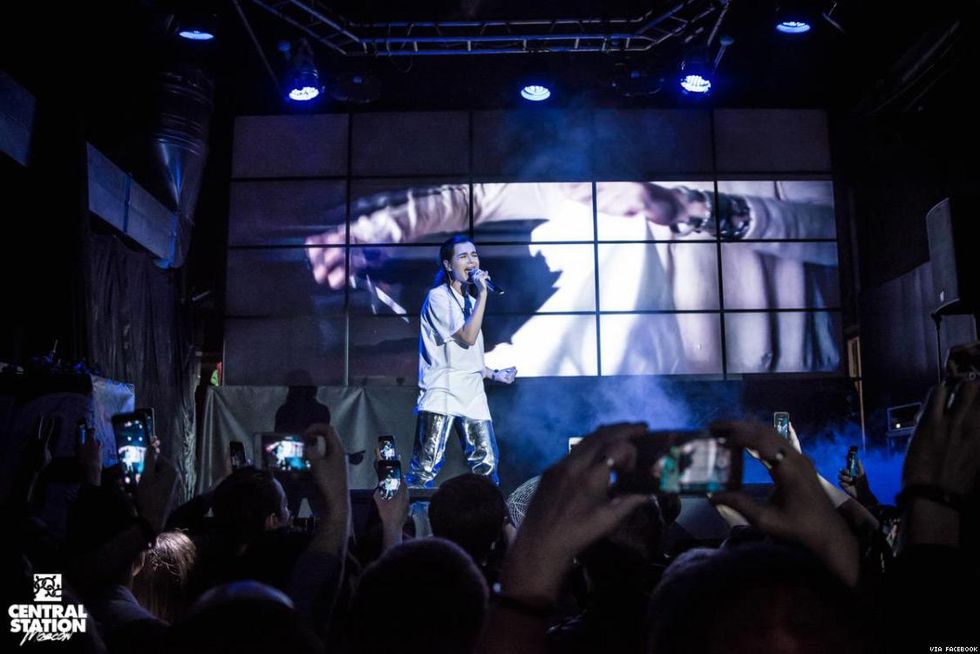 28. Central Station (2013)
28. Central Station (2013)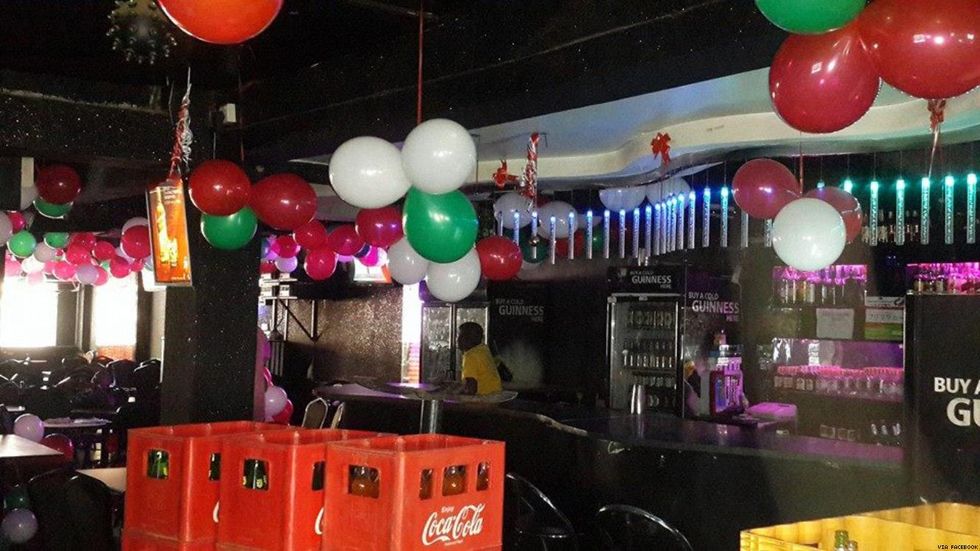 29. Club Envy (2014)
29. Club Envy (2014)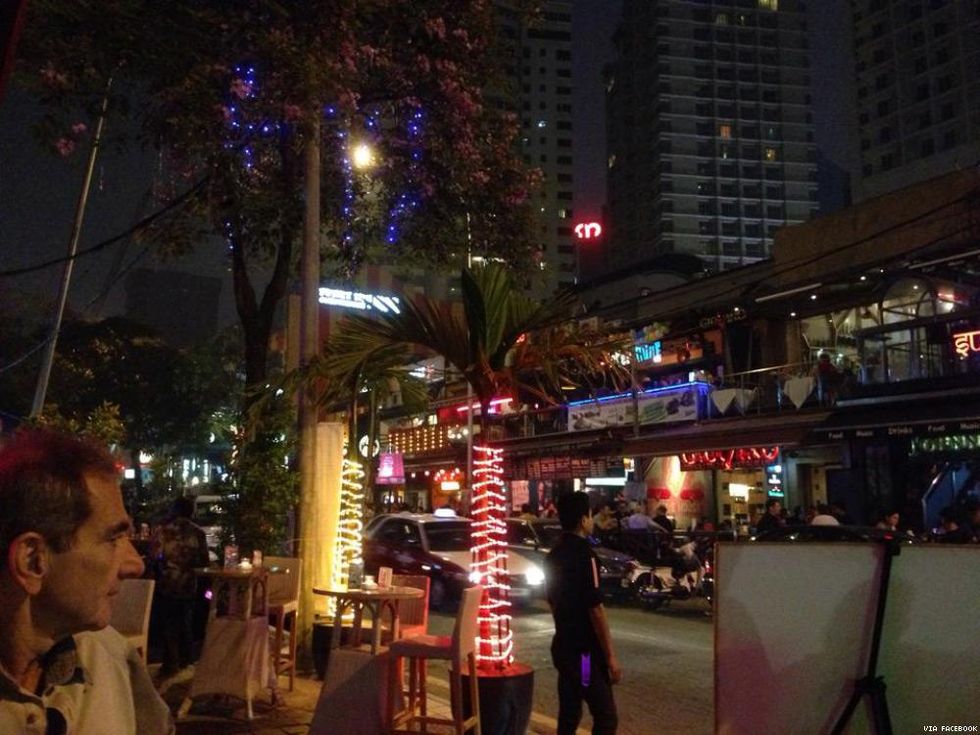 30. BlueBoy (2016)
30. BlueBoy (2016)

































































Charlie Kirk DID say stoning gay people was the 'perfect law' — and these other heinous quotes